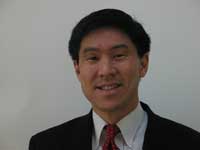As our plane touched down in Beijing, I thought about my late mother, who left China as a young woman, returning only twice.
Twenty years had passed since that final visit, and I regretted she never had another chance. Thinking further, I realized that she probably would never have recognized China for its changes. Indeed, as I talked with friends, I heard likewise: China is changing so rapidly, even “natives” have trouble keeping up with the latest social and cultural trends.
If you are going, or even if you’ve been there, here are some to be aware of.
Housing Challenges
Young employees often have trouble finding housing. As a result, many cope via 蚁族 yǐzú , or “ant race.” They share an apartment, working like ants to save for a place of their own. Because the ant is both social and highly motivated, Shanghai-based consultant Kin Ho Wong maintains that “ant race” is preferred to the Western “rat race.” Wong says that the former conveys dedication and industriousness, and lacks the negative connotations of the latter.
Improvements in Education
Career concerns often lead students to study overseas, returning to China to work.
Such Chinese are called 海龟 hǎiguī, or “sea turtle.”“龟”is a play on the character “归.” Though both are pronounced the same, guī, they have different meanings. 龟means “turtle” while 归 means “to return.” In previous years, such education, particularly in the United States, was invariably superior to what they could get in China. Therefore, these 海龟 were almost always guaranteed better jobs than those who remained in China for their education.
This difference in treatment often created jealousy in the past. Today, however, another factor has emerged. With China’s rapid progress, its educational institutions have improved as well. Therefore, a degree from a foreign university, unless from a top-ranked one, no longer carries the same influence. Nonetheless, many 海龟 may carry with them a sense of entitlement. If they do not get the better jobs they are expecting, they too may become resentful. Be alert to this dynamic if you are working with or supervising people from China.
The Power of ‘PK’
One of the most popular phrases right now in China is “PK.” According to Wong, this phrase stands for “player kill” and is a video game term. In business and academia, the term refers to the engaging in discussions of an idea, while encouraging opposite “devil’s advocate” views. After a person raises an idea in a meeting or class, a leader or professor will say to others, “I’d like to hear some PK.”
Think of PK as the ancient concept of “saving face” with a contemporary twist. One can PK an idea without judging its proponent. Use “PK” in a meeting and your Chinese colleagues will know what you mean.
Dealing with Difficult Issues
Many Chinese dislike mentioning unpleasant topics.
Therefore, they will use alternate phrases involving a play on words. For example, rather than write “悲剧,”meaning “tragedy,” a person might write ”杯具” instead. Both phrases are pronounced bēijù. However, the latter means “to have a cup.” In writing the “wrong” term, the person downplays the seriousness of the situation, and jokes about it. Similarly, the phrase 惨剧 means “tragic,” pronounced “cǎnjù .” However, many Chinese would write or speak instead 餐具 cānjù, which refers to dishware. This phrase uses different characters and different tones.
Beginning students of Chinese often speak the wrong tones, thereby unintentionally saying a different word. For example, I should address my mother in law as ”妈” mā. I used to err, often calling her 马 mǎ, which means “horse.” In the case of 惨剧 /餐具, though, the “wrong” tones are intentional. If you read or understand Chinese, be alert for such phrases. It’s possible the person really didn’t make a mistake in speaking a tone, or a mistake in writing a character, but is to alluding to problems. If you’re learning Chinese, and want to impress a Chinese speaker, try using these terms—but make sure about the tones.
Changes in Government Approach
Beginning in 1978, the Chinese government began economic reform. Be aware that along with this economic reform has come a change in the way the government conducts itself.
The film Avatar has been hugely popular, with screenings regularly sold out. However, at the same time, the government has been interested in the movie Confucius. Rather than simply dictate that the theaters drop the former, the state film bureau has employed negotiation instead, asking theaters to devote screens to the Confucius movie. However, Avatar has been so outperforming Confucius that the state film bureau had abandoned even that position as well. Such actions would have been unthinkable prior to the beginning of reform.
Likewise, government attitudes towards churches, at least in Beijing, have eased. For example, the “international churches” are technically off-limits to “local” Chinese. I was told, when I arrived in Beijing, that public security officers would check passports of congregants. However, not once did they ask me, or anyone else at my church.
They simply stood at the door, waving and saying hello to people as they entered.
Born in the United States, Calvin Sun WG82 is of Chinese descent. He consults with clients to address and resolve organizational issues and writes and speaks on this topic. Calvin also holds a J.D. from Temple University Beasley School of Law, and lived in Beijing in 2008 while teaching and studying at Tsinghua University School of Law.

























